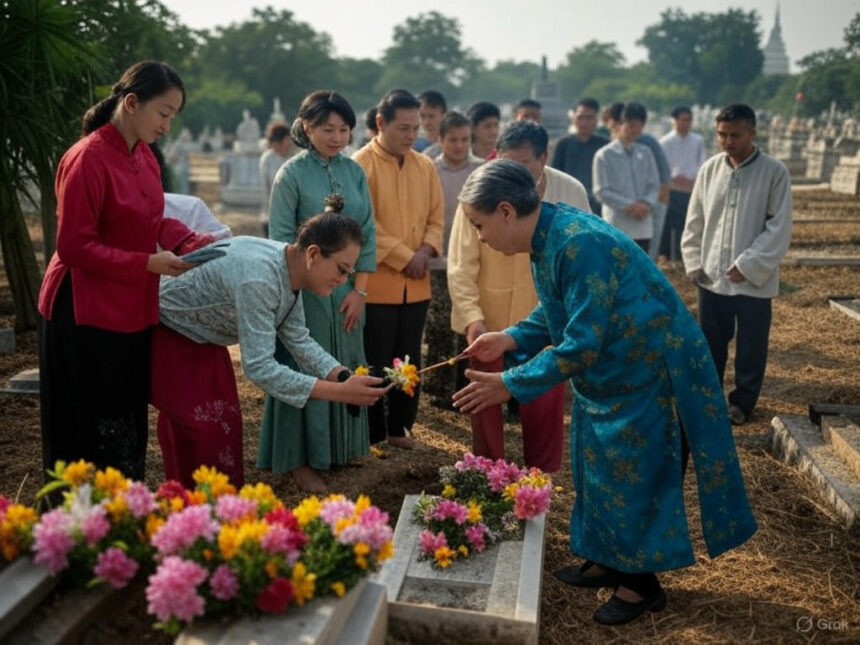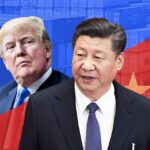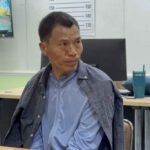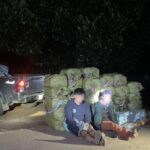The Qingming Festival, or Tomb-Sweeping Day, is a long-standing Chinese tradition dedicated to paying tribute to ancestors. In Thailand, which has the largest ethnic Chinese population in Southeast Asia—over nine million people—the festival holds significant importance, particularly among Thai-Chinese communities.
Although it is not recognized as a public holiday like in China, Qingming remains a meaningful occasion for family gatherings and cultural practices.

Observing Qingming in Thailand
Thai-Chinese families mark Qingming by visiting cemeteries across the country, such as the Teochew Cemetery in Bangkok or another in Phitsanulok, to honor their ancestors. These visits typically take place around the beginning of April, coinciding with the festival’s official dates in China.
For convenience, many families choose the nearest weekend. The main custom involves cleaning and maintaining ancestral graves, removing weeds, and sometimes adding fresh soil or repairing headstones.
Offerings are an essential part of the tradition. Families present items like roast pork, fruits, tea, wine, and joss paper, often burned alongside paper replicas of items such as houses or cars. These symbolic gifts are believed to support ancestors in the afterlife. Incense is lit, and family members may bow or kneel in a sign of respect, often following the order of seniority.

Blending Traditions with Local Practices
The Thai-Chinese celebration of Qingming combines traditional Chinese customs with local influences. In some areas, Buddhist monks are invited to bless the graves, merging Chinese ancestor worship with Thailand’s Theravada Buddhist culture.
Unlike in China, where qingtuan (green rice dumplings) are a popular food during the festival, Thai-Chinese families might focus on dishes tied to their own heritage or local cuisine. After rituals are completed, families often share a meal at the gravesite or nearby, symbolizing a reunion with their ancestors.
Thailand’s Chinese population is made up of diverse groups, including the Teochew, Hakka, and Hainanese, each maintaining traditions rooted in their ancestral regions in China. The Teochew, who account for 56% of Thai-Chinese people, play a prominent role in organizing Qingming-related events.
The Teochew Association of Thailand, for example, facilitates community activities during the festival. In some areas, unique practices have emerged. In Chiang Rai, for instance, the Chinese Association screens outdoor movies at cemeteries to entertain spirits, though fewer people attend these events due to their late-night timing.
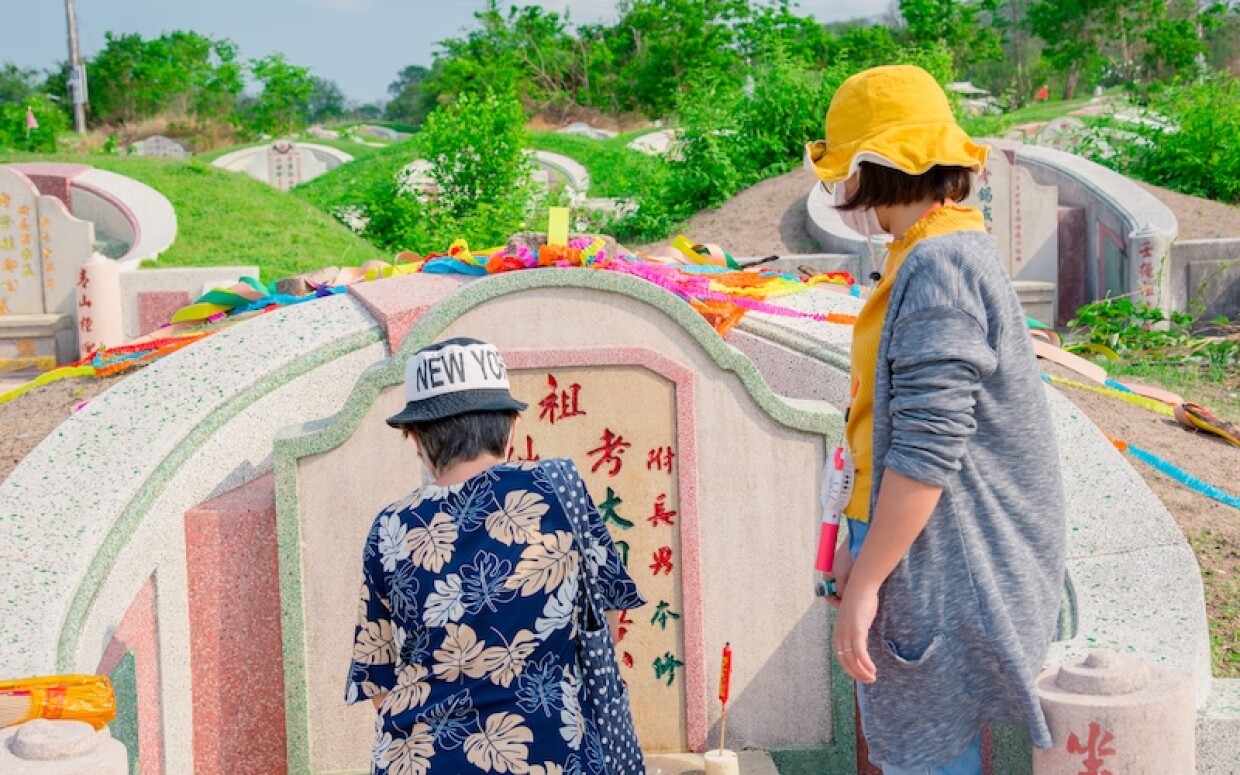
Cultural Diversity Among Thai-Chinese Communities
For many Thai-Chinese families, Qingming is also a time to reflect on the struggles of their immigrant ancestors, many of whom arrived from southern China, particularly Shantou, over 200 years ago. Cemeteries like Wat Don in Bangkok, which contains over 10,000 tombs of first-generation immigrants, serve as reminders of their hard lives.
Many of these early migrants faced harsh conditions, with low life expectancies due to labor-intensive work. The festival offers a way for descendants to honor this history while reinforcing bonds with their cultural heritage.
While Qingming is a solemn occasion, it also carries lighter traditions tied to springtime. Some families fly kites or hang willow branches at home to ward off bad spirits. Though these activities are less common in Thailand than in China, they add a festive element to the day.
Ultimately, Qingming in Thailand is a deeply personal and family-centered tradition. It bridges the past and present, allowing Thai-Chinese communities to honor their roots while celebrating their place in Thailand’s multicultural society.
Related News:
Sea Burials During Qingming Festival Gain Popularity in China

Geoff Thomas is an award winning journalist known for his sharp insights and no-nonsense reporting style. Over the years he has worked for Reuters and the Canadian Press covering everything from political scandals to human interest stories. He brings a clear and direct approach to his work.




